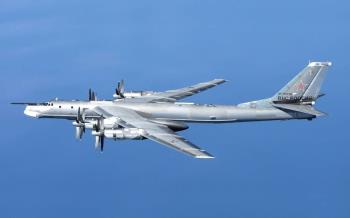Alwaght- News outlets have reported on August 28 that 20 Saudi troops commanded by an officer named Saud al-Jagifi arrived at Al-Shadadi military base in Hasakah suburbs northeast of Syria. Evidence shows that the forces entered Syria along with American forces who last week started their retreat from Iraq’s Taji military base.
Back on December 21 last year, informed local sources, speaking on condition of anonymity, told the Arabic service of Turkey’s official Anadolu news agency that dozens of Saudi soldiers had arrived at the Omar oilfield in Syria’s eastern province of Deir ez-Zor aboard helicopters.
Reports suggested that the troops were tasked with the protection of engineers and technicians of the Saudi Aramco oil company that sent its personnel last week to this Syrian oilfield. They resided in a residential area in Green Village in the vicinity of the oil-rich region, further reports said.
The Saudi force deployment to Syria in the present conditions raises some questions: What is their goal? Is it a response to a request from the American president as part of a plan to send a mission from the Saudi-led Arab coalition?
Trump-raised Arab coalition
The entry to Syria of Arab forces should be referred to the Trump’s 2017 proposal to the Arab countries to send their Troops under a coalition to northern Syria. At the time, Trump’s reasoning was that the US forces should pull out of Syria as soon as possible and the Arab allies of Washington should shoulder the costs of holding Syria’s north. In 2017 the plan was about forming a united Arab front under the US support and leadership formed to protect the Syrian Democratic Forces (SDF) who are holding parts of the north, northeast, and southeast. The American scheme failed at the outset and never materialized.
Saudi Arabia and the UAE, both worried to see Iran entrenching its presence and playing a major role on the Syrian ground and were in favor of US stay in the war-weary Arab country, relatively welcomed the plan but they did not realize it as they felt structural weakness in their armed forces. But Egypt, owner of the largest Arab world army, categorically opposed the move as it held anti-Muslim Brotherhood and anti-Turkish stances and historic relations with Syria.
The Plane proved a total failure since its beginning. So, sending a number of Saudi troops and oil workers to Syria can never be read as a move marking the revival of the US plan. Washington intended to persuade the Arab leaders to send at least 10,000 troops to the north but the present very small number does not carry the potentials to implement the plan.
Saudi Arabia and the story of a defeated army
From another aspect, it should be noted that Saudi Arabia has neither military capability nor readiness to send forces for cross-border missions. The Saudi military intervention in Syria comes while its forces have sustained big defeats on the Yemeni battlegrounds. After six years of unceasing attacks on defenseless Yemen, Riyadh failed to make any gains in the impoverished Arab country. The important point is that a majority of the forces fighting in Yemen under the Saudi command are foreign mercenaries paid heavily each time they are flown into Yemen to fight Yemeni forces. Therefore, the Saudi military deployment to Syria is more a political comedy than an effective presence.
Bin Salman sends a symbolic message to Erdogan
Another possible reason for the Saudi entry to the Kurdish-controlled oil-rich regions could be that Saudi Arabia intends to symbolically step in geopolitical rivalry with Turkey at a regional level. Since the Islamic awakening uprisings of 2011, the ruling Justice and Development Party (AKP) of Turkey did not hesitate to promote Muslim Brotherhood ideology and supported political groups close to Ankara in the Arab countries. This action, especially in Egypt and Tunisia, was not neglected by the UAE and Saudi Arabia. They immediately took action in response. The result in Egypt for example was the ouster of the first democratically-elected President Mohamad Morsi after a year of his presidency and his replacement with Abdel Fattah el-Sisi who led the military coup.
But the new phase of the two camps’ confrontation shoed face after Donald Trump became president in the US. In 2017, Saudi Crown Prince Mohammed bin Salman, Abu Dhabi Crown Prince Mohammed bin Zayed, and el-Sisi founded the so-called Arab coalition with the US support, with one of its objectives countering Turkey’s regional policies. The alliance should be deemed the top foe of the Muslim Brotherhood in the region. Now bin Salman intends to tell the Turkish President Recep Tayyip Erdogan that he will support the Syrian Kurds whom Turkey regards a threat to its national security. This comes as the foreign ministry of Turkey had already lashed out at the UAE for its backing to the Kurdish groups in northern Syria.
Turkey's sensitivity could be understood very well if we consider the fact that over the last year the Emiratis and Saudis took steps to cozy up to the Kurdistan Workers’ Party (PKK) that has been fighting the Turkish government at home for decades. Reports suggest that the UAE, which is accused by Turkey of being one of the plotters behind the attempted coup against Erdogan in July 2016, in December 2019 invited SDF commander Mazloum Kobani for a visit to Abu Dhabi for talks. Before Kobani’s visit a PKK delegation led by Hassan Yousef, the chief of the PKK-aligned Deir ez-Zor National Assembly, had visited Riyadh.



























